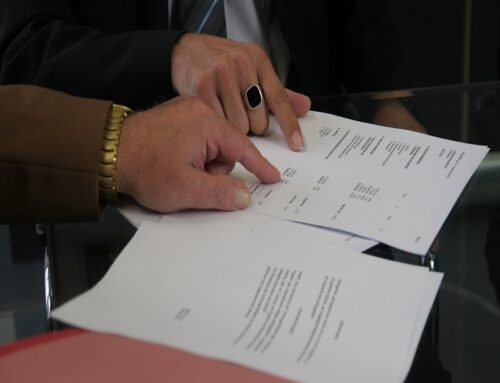Is Notarization Required for a Separation Agreement?
The short answer is no—notarization is not legally required for a separation agreement in Ontario. Instead, for the agreement to be enforceable, it must meet the following criteria:
- It must be in writing
- It must be signed by both parties
- It must be witnessed by a third party
Who Can Be a Witness?
A witness is simply someone who watches both parties sign the agreement and then signs it themselves to confirm that the signatures are authentic. The witness must be:
- Over the age of 18
- Not a party to the agreement
- Preferably someone with no personal interest in the outcome
A notary public or lawyer can act as a witness, but this is not mandatory. Any competent adult can fulfill this role.
Benefits of Notarizing a Separation Agreement
Although notarization is not required, some couples choose to notarize their separation agreement for additional protection. The benefits of notarization include:
1. Stronger Proof of Authenticity
A notarized document is harder to dispute in court because a notary public has verified the identities of the signing parties and confirmed they are signing voluntarily.
2. Deterring Fraud or Forgery
Notarization can help prevent fraudulent claims that one party’s signature was forged or obtained under duress.
3. Easier Enforcement in Court
While notarization does not make the agreement legally binding on its own, it can make it easier to enforce if a dispute arises in the future.
4. International Recognition
If one spouse moves abroad or the agreement needs to be recognized outside Ontario, notarization may add credibility in other jurisdictions.
When Should You Consider Notarizing a Separation Agreement?
Although notarization is not required for a separation agreement in Ontario, there are certain situations where it may be beneficial. Notarizing the document can provide extra security and reduce the risk of disputes. Here are some scenarios where notarization may be a good idea:
1. If One Spouse May Later Challenge the Agreement
If there is any concern that one party might later claim they did not sign the agreement voluntarily or that their signature was forged, notarization can help prevent such disputes. A notary public verifies the identities of both parties and ensures they sign the document willingly. This can provide stronger evidence in court if the agreement is ever contested.
2. When Dealing with International Legal Matters
If one spouse plans to relocate to another country or if the agreement involves international assets, notarization can add an extra layer of credibility. Some foreign jurisdictions may require a notarized agreement for it to be recognized in their legal system. Having the document notarized may simplify legal processes abroad.
3. If Required by a Financial Institution for Property or Asset Transfers
Some financial institutions, real estate transactions, or investment firms may request a notarized separation agreement before allowing certain property or asset transfers. While this is not always the case, notarization can help ensure that the agreement is readily accepted by banks, mortgage lenders, and other financial institutions when dividing assets.
How to Ensure a Separation Agreement Is Legally Enforceable
1. Independent Legal Advice (ILA) for Both Spouses
Although not legally required, obtaining Independent Legal Advice (ILA) from separate lawyers is highly recommended. This ensures that:
- Both parties fully understand their rights and obligations.
- Neither spouse was pressured or coerced into signing the agreement.
- The agreement is fair and reasonable, reducing the risk of it being challenged in court.
If one spouse does not receive legal advice, they may later claim they did not understand the terms, which could lead to the agreement being set aside.
2. Full Financial Disclosure to Prevent Disputes
A separation agreement must be based on honest and complete financial disclosure. Each spouse should provide:
- Income details (pay stubs, tax returns)
- Assets and liabilities (real estate, investments, debts)
- Pension and retirement savings information
Failing to disclose financial details can lead to the agreement being challenged or invalidated in court. A judge may set aside the agreement if they find that one party withheld key financial information.
3. Proper Signing and Witnessing Procedures
For a separation agreement to be legally binding in Ontario, it must be:
- In writing
- Signed by both spouses
- Witnessed by a third party who also signs the agreement
The witness must be over 18 and cannot be a party to the agreement (e.g., not the spouse, their lawyer, or anyone with a vested interest). While notarization is not required, proper witnessing ensures that the document is legally valid.
4. Filing a Copy with the Court (If Needed for Enforcement)
In most cases, a separation agreement does not need to be filed with the court. However, if a dispute arises—especially regarding child support, spousal support, or parenting arrangements—filing the agreement with the court can help with enforcement.
To do this, the agreement can be:
- Included in an Application for Divorce (making it part of the court order).
- Filed with the Family Responsibility Office (FRO) for child support or spousal support enforcement.
If a party fails to follow the terms of the agreement, having it filed with the court may make it easier to enforce without needing a lengthy legal battle.
Consequences of an Improperly Signed or Witnessed Agreement
1. Risk of Being Challenged in Court
If a separation agreement is not properly signed or witnessed, one party may later challenge its validity in Ontario family court. This could happen if:
- The witness was not present when the signatures were made.
- The agreement was signed under duress or without full understanding.
- The document contains ambiguities or errors that make enforcement difficult.
2. Possible Unenforceability if Coercion or Lack of Legal Advice Is Claimed
A separation agreement may be set aside by the court if one spouse claims they were:
- Forced or pressured into signing it.
- Not given enough time to review the terms.
- Denied independent legal advice (ILA) before signing.
While ILA is not mandatory, having both parties consult with separate lawyers strengthens the agreement and reduces the risk of it being overturned. Courts may invalidate agreements that appear unfair, one-sided, or signed without full awareness of rights and obligations.
3. Additional Legal Costs to Correct Errors
If a separation agreement is found to be improperly signed or witnessed, the parties may need to:
- Re-sign the document with proper witnessing.
- Renegotiate terms if one party refuses to sign again.
- Go to court to resolve disputes over its validity.
These complications can lead to additional legal fees, delays, and emotional stress. In extreme cases, an invalid agreement may force both parties to restart negotiations or seek a court order to settle outstanding issues.
Numan Bajwa is the Founding Partner at Bluetown Law – Family Lawyers. He earned his Juris Doctor from the University of Detroit Mercy School of Law (2011–2014) and holds an Honours degree in Criminology from the University of Windsor (2003–2008).









